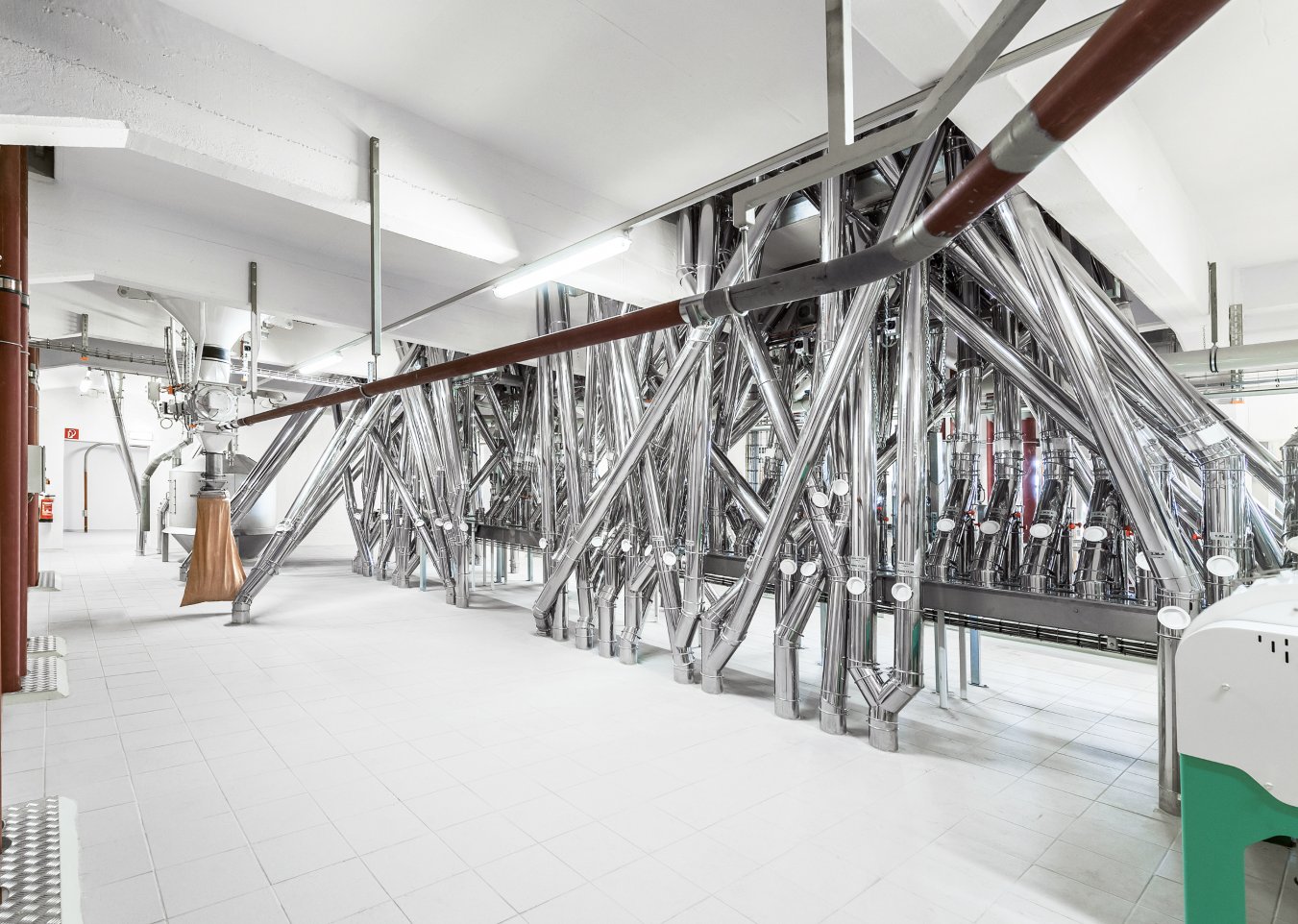Flour milling is a dry process that produces negligible environmental emissions
Flour mills have often been central to their local communities for generations. Our members are good neighbours, supporting their communities and engaging over any questions or concerns.
Electricity usage and other environmental impacts
The greatest environmental impact of flour milling results from energy usage i.e. electricity. Flour millers have always been keen to improve energy efficiency, not least to reduce their own costs.
Other potential environmental impacts include the fugitive emissions of flour dust and in some circumstances, noise pollution. Dust emissions to the environment are limited with the use of filters and hoses whilst noise levels are monitored.
Although the flour milling industry may be naturally less intrusive environmentally compared with many other industries, millers are keen to maintain this clean record. This includes:
- Low use of natural resources
- Use of biomass for sustainable energy production
- Reduction of air emissions
- Improve energy consumption through better measurement (sensor data)
- Productive use of co-products
The Industrial Emissions Directive (IED)
The aim of the Industrial Emissions Directive is to prevent or reduce pollution of the atmosphere, water or soil to ensure high levels of environmental protection. This Directive requires mills - like any other industrial or agricultural activities - producing over 300t/day to obtain a permit from their national Environment Agency. To be issued with a permit certain environmental conditions must be met, which therefore requires companies to be responsible for reducing and preventing pollution they may cause. Without this permit, the concerned sites will not be allowed to operate.
BREF (Best available techniques Reference Document)
The permit conditions including emission limit values must be based on the Best Available Techniques (BAT). European Flour Millers have been contributing to the elaboration of the Best Available Techniques Reference document (BREF) for the food industry. BREFs are the basis on which Member States can set emission limit values. These values are to be part of the environmental permit granted to industrial installations as a license to operate.

